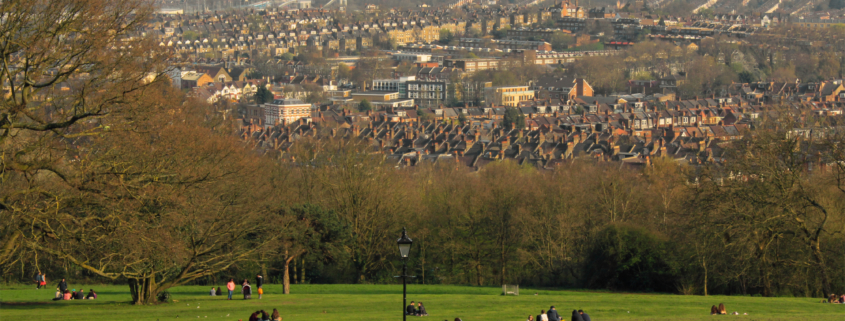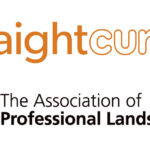Protecting Britain’s public parks is key to achieving the Government’s Levelling-Up ambitions
2.8 million people in Great Britain do not have a green space within a ten-minute walk of home. Green space per person is lower in Government’s priority levelling-up target areas
If progress is to be made on the Government’s flagship “levelling-up” agenda the nation’s parks must be protected from further loss, according to green space charity Fields in Trust. Their annual ‘Green Space Index’ report suggests Britain’s local parks and green spaces have a significant role to play in restoring a sense of community and local pride as well as contributing to health, wellbeing and climate change resilience.

Protecting Britain’s public parks is key to achieving the Government’s Levelling-Up ambitions
Local authorities in the Government’s priority levelling-up areas have, on average, 10% less green space provision when benchmarked against the amount communities need to thrive. The amount of green space per person in these priority levelling-up areas is set to decline by 2040 as population grows. The unequal distribution and access to local parks is stark and felt the most in those left behind neighbourhoods which are already missing out on the physical health, mental wellbeing and environmental impacts of local green space. Earlier research from Fields in Trust valued the health and wellbeing benefits for park users at more than £34 billion each year. Regular users of parks have fewer visits to their GP resulting in an annual saving to the NHS of £111 million.
Fields in Trust’s Green Space Index analysis demonstrates the disparities between nations and regions that the Levelling-Up programme is attempting to rectify. Fields in Trust found that Yorkshire and the Humber and the north west region fall well below a minimum standard for green space. Scotland, at 41 square metres per person, has more green space provision than both England and Wales. As a region, London’s green space is very accessible, but the region has the least green space per person, at just 19 sqm.
Speaking at the Westminster launch of the charity’s new analysis, Clive Betts MP, Chair of the DLUHC Parliamentary select committee and a Trustee of the Fields in Trust charity said “The role of green infrastructure in planning and healthy place-making should be central to government ambitions to rebalance geographic inequalities. Yet 2.8 million people already live more than a ten-minute walk from a public park, with levelling-up target areas having around 10% less green space than the average across Britain”.
Alongside their value for community health and wellbeing, local parks have a vital role to play in supporting our environment. These spaces improve air quality, capture harmful carbon and boost biodiversity.
Levelling-up requires a focused, long-term plan of action if it is to act upon the drivers of spatial disparity. Ensuring all neighbourhoods have accessible provision of parks and green spaces can help address a complex set of targets set by Government – which include improving pride of place, developing climate resilience, and improving local community infrastructure.
Fields in Trust’s analysis suggests that, unless local parks and green spaces are protected in the long-term, any levelling-up interventions will be transitory.
Liverpool West Derby MP, Ian Byrne, said: “Liverpool City Council’s landmark partnership to protect all of their parks with Fields in Trust demonstrates a solution that will benefit both people and place – not just for current residents but also into the future as Liverpool’s population is set to rise. The bold vision will ensure everyone in Liverpool lives within a ten-minute walk of a park or green space which will be protected, forever.
During Covid, we have seen the huge importance of green spaces for all within our communities and this collaboration between Fields in Trust and Liverpool City Council will hopefully be a catalyst for many other local authorities to do exactly the same and enshrine their green spaces with Fields in Trust to protect them for future generations.”
Fields in Trust have received similar commitments to protect access to local parks from the City of Edinburgh Council who want to ensure residents have local green space protected forever. Wrexham County Borough Council is adding to their protected portfolio of green space as part of a drive to net zero.
Chair of Fields in Trust, Jo Barnett, said: “We know that parks and green spaces play a vital role in people’s health and wellbeing, yet the Green Space Index demonstrates uneven provision across Great Britain, and our most vulnerable communities are impacted negatively.
Although the scale and interdependency across the levelling-up portfolio is intensely complex, parks and green spaces deliver impacts across the range of social policy agendas yet remain undervalued for the multiple benefits they contribute to our communities. The climate crisis adds a new impetus to protect urban green space and as our work in Liverpool shows local authorities are recognising the important part green space plays in our neighbourhoods, towns and cities and stepping-up to ensure it is future proofed.”
The Green Space Index is an annual report from the charity Fields in Trust which analyses provision of park and green spaces. The report was first produced in 2019, and this year is the Index’s fourth edition. People can find out more about the green space provision by using the interactive web app on the Fields in Trust website.
For the latest industry news visit landscapingmatters.co.uk/news
Get all of the big headlines, pictures, opinions and videos on stories that matter to you.
Follow us on Twitter and Instagram for fun, fresh and engaging content.
You can also find us on Facebook for more of your must-see news, features, videos and pictures from Landscaping Matters.












